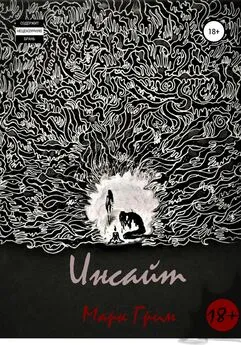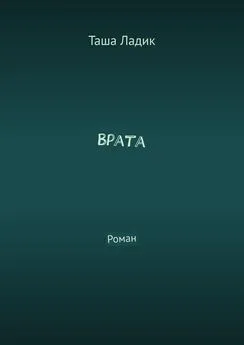Таша Эйрих - Инсайт
- Название:Инсайт
- Автор:
- Жанр:
- Издательство:Манн, Иванов и Фербер
- Год:2018
- Город:Москва
- ISBN:9785001170136
- Рейтинг:
- Избранное:Добавить в избранное
-
Отзывы:
-
Ваша оценка:
Таша Эйрих - Инсайт краткое содержание
Инсайт - читать онлайн бесплатно ознакомительный отрывок
Интервал:
Закладка:
90
“Study shows link between self-awareness and company financial performance,” Korn Ferry Institute, June 15, 2015, http://www.kornferry.com/press/korn-ferry-institute-study-shows-linkbetween-self-awareness-and-company-fnancial-performance/.
91
PDI Ninth House. “You’re not all that: Self-promoters six times more likely to derail,” prnewswire.com, April 17, 2012, http://www.prnewswire.com/news-releases/youre-not-all-that-selfpromoters-six-times-more-likely-to-derail-according-to-pdi-ninth-houseand-university-of-minnesota-study-147742375.html.
92
David Dunning. “On identifying human capital: Flawed knowledge leads to faulty judgments of expertise by individuals and groups.” Advances in Group Processes. Emerald Group Publishing Limited, 2015, pp. 149–176.
93
Ulrike Malmendier and Geoffrey Tate. “CEO overconfidence and corporate investment.” Journal of Finance 60.6 (2005): 2661–2700.
94
Fabio Sala. “Executive blind spots: Discrepancies between self-and other-ratings.” Consulting Psychology Journal: Practice and Research 55.4 (2003): 222–229.
95
Cheri Ostroff, Leanne E. Atwater, and Barbara J. Feinberg. “Understanding self-other agreement: A look at rater and ratee characteristics, context, and outcomes.” Personnel Psychology 57.2 (2004): 333–375.
96
По некоторым данным, в общем случае мы более точно оцениваем себя в возрасте от 25 до 35 лет, но эта точность снижается в возрасте от 35 до 45 лет. Кроме того, поразительно, что, в отличие от студентов, изучающих естествознание, социологию и гуманитарные науки, студенты бизнес-факультетов сильнее всего завышали свою самооценку относительно объективной эффективности. Phillip L. Ackerman, Margaret E. Beier, and Kristy R. Bowen. “What we really know about our abilities and our knowledge.” Personality and Individual Differences 33 (2002): 587–605.
97
John W. Fleenor, et al. “Self-other rating agreement in leadership: A review.” The Leadership Quarterly 21.6 (2010): 1005–1034.
98
Margaret Diddams and Glenna C. Chang. “Only human: Exploring the nature of weakness in authentic leadership.” The Leadership Quarterly 23.3 (2012): 593–603.
99
Alison Boulton. “Power corrupts but it also plays with your mind: Lloyd George, Chamberlain, and Thatcher all suffered from ‘hubris syndrome,’” independent.co.uk, September 21, 2013, http://www.independent.co.uk/life-style/health-and-families/healthnews/power-corrupts-but-it-also-plays-with-your-mind-lloyd-georgechamberlain-and-thatcher-all-suffered-8831839.html.
100
Rachel M. Hayes and Scott Schaefer. “CEO pay and the Lake Wobegon effect.” Journal of Financial Economics 94.2 (2009): 280–290.
101
Per F. Gjerde, Miyoko Onishi, and Kevin S. Carlson. “Personality characteristics associated with romantic attachment: A comparison of interview and self-report methodologies.” Personality and Social Psychology Bulletin 30.11 (2004): 1402–1415.
102
Gary Wolf. “The data-driven life,” The New York Times Magazine, April 28, 2010, http://www.nytimes.com/2010/05/02/magazine/02self-measurement-t.html?_r=0.
103
Greenwald & Associates, Inc. Parents, youth, and money: Executive summary. 2001, https://www.ebri.org/surveys/pym-es.pdf.
104
Результаты этого исследования, проводившегося в 1976 году (когда представители послевоенного поколения учились в колледжах), свидетельствуют о том, что представители поколения миллениалов не были первыми в этой закономерности! И я, будучи представительницей этого поколения, совершенно объективно заявляю об этом.
105
College Board. Student descriptive questionnaire. Princeton, NJ: Educational Testing Service. 1976–1977.
106
Mark D. Alicke, et al. “Personal contact, individuation, and the better-than-average effect.” Journal of Personality and Social Psychology 68.5 (1995): 804–825.
107
Justin Kruger and David Dunning. “Unskilled and unaware of it: How difficulties in recognizing one’s own incompetence lead to inflated self-assessments.” Journal of Personality and Social Psychology 77.6 (1999): 1121–1134.
108
E. Kunkel. “On the relationship between estimate of ability and driver qualification.” Psychologie und Praxis (1971).
109
Beth A. Lindsey and Megan L. Nagel. “Do students know what they know? Exploring the accuracy of students’ self-assessments.” Physical Review Special Topics — Physics Education Research 11.2 (2015): 020103; Douglas J. Hacker, et al. “Test prediction and performance in a classroom context.” Journal of Educational Psychology 92.1 (2000): 160–170.
110
Daniel E. Haun, et al. “Assessing the competence of specimen-processing personnel.” Laboratory Medicine 31.11 (2000): 633–637.
111
Joyce Ehrlinger, et al. “Why the unskilled are unaware: Further explorations of (absent) self-insight among the incompetent.” Organizational Behavior and Human Decision Processes 105.1 (2008): 98–121.
112
David Dunning. “We are all confident idiots,” psmag.com, October 27, 2014, http://www.psmag.com/health-and-behavior/confdent-idiots-92793.
113
Oliver J. Sheldon, David Dunning, and Daniel R. Ames. “Emotionally unskilled, unaware, and uninterested in learning more: Reactions to feedback about deficits in emotional intelligence.” Journal of Applied Psychology 99.1 (2014): 125–137.
114
Michael Lewis, et al. “Self development and self-conscious emotions.” Child Development (1989): 146–156.
115
Susan Harter. The Construction of the Self: A Developmental Perspective. Guilford Press, 1999, p. 318.
116
Susan Harter. The Construction of the Self: A Developmental Perspective. Guilford Press, 1999, p. 318.
117
Этот вывод основан на результатах наших исследований по теме самоосознания. См. также: Andreas Demetriou and Karin Bakracevic. “Reasoning and self-awareness from adolescence to middle age: Organization and development as a function of education.” Learning and Individual Differences 19.2 (2009): 181–194.
118
Информация для любителей статистики: мы установили, что коэффициент корреляции между возрастом и внутренним самоосознанием составляет всего 0,16, а в случае внешнего самоосознания равен 0,05.
119
Constantine Sedikides, et al. “Behind bars but above the bar: Prisoners consider themselves more prosocial than nonprisoners.” British Journal of Social Psychology 53.2 (2014): 396–403, p. 400.
120
David Dunning, et al. “Why people fail to recognize their own incompetence.” Current Directions in Psychological Science 12.3 (2003): 83–87.
121
Ira Stoll. “How the experts struck out on World Series baseball,” nysun.com, October 28, 2013, http://www.nysun.com/national/how-the-experts-struck-out-on-world-series/88471/.
122
S. Atir, E. Rosenzweig, and D. Dunning. “When knowledge knows no bounds: self-perceived expertise predicts claims of impossible knowledge.” Psychological Science 26.8 (2015): 1295–1303.
123
Berndt Brehmer. “In one word: Not from experience.” Acta Psychologica 45.1 (1980): 223–241.
124
В своей книге на эту тему «Думай медленно… Решай быстро» (М.: АСТ, Neoclassic, 2017) Дэниел Канеман называет эти процессы «думать быстро» и «думать медленно» соответственно.
125
Daniel Kahneman. Thinking, Fast and Slow. Macmillan, 2011, p. 99. (Канеман Д. Думай медленно… решай быстро. М.: АСТ, 2013.
126
Norbert Schwarz. “Stimmung als Information: Untersuchungen zum Einflufs von Stimmungen auf die Bewertung des eigenen Lebens” [Mood as information: The influence of moods and emotions on evaluative judgments]. Psychologische Rundschau 39 (1987): 148–159.
127
Fritz Strack, Leonard L. Martin, and Norbert Schwarz. “Priming and communication: Social determinants of information use in judgments of life satisfaction.” European Journal of Social Psychology 18.5 (1988): 429–442.
128
Оформить подписку можно на сайте www.TashaEurich.com.
129
Wilhelm Hofmann, Tobias Gschwendner, and Manfred Schmitt. “The road to the unconscious self not taken: Discrepancies between self- and observer-inferences about implicit dispositions from nonverbal behavioural cues.” European Journal of Personality 23.4 (2009): 343–366.
130
Chris Argyris. Teaching Smart People How to Learn. Harvard Business Review Press, 2008.
131
Peter F. Drucker. “Managing oneself.” Harvard Business Review 83.1 (2005): 100–109.
132
Justin Kruger and David Dunning. “Unskilled and unaware of it: How difficulties in recognizing one’s own incompetence lead to inflated self-assessments.” Journal of Personality and Social Psychology 77.6 (1999): 1121. См. также D. Ryvkin, M. Krajč, and A. Ortmann. “Are the unskilled doomed to remain unaware?” Journal of Economic Psychology 33.5 (2012): 1012–1031.
133
Bob Sutton. “Great Piece on Narcissistic CEOs in The New York Times,” Work Matters blog, March 7, 2012, http://bobsutton.typepad.com/my_weblog/2012/03/great-piece-on-narcissistic-ceos-in-the-new-york-times.html.
134
Благодарю своих друзей Майка Геррона и Чака Блейкмена за эту мысль.
135
Дэниел Бурстин (1914–2006) — американский историк и публицист. Прим. ред. .
136
Джеймс Ван Дер Бик (р. 1977) — американский актер, наиболее известный по роли Доусона Лири в сериале «Бухта Доусона». Прим. пер. .
Читать дальшеИнтервал:
Закладка:




![Таша Танари - Подарить душу демону [publisher: ИДДК]](/books/1073950/tasha-tanari-podarit-dushu-demonu-publisher-iddk.webp)
![Таша Танари - Испытать силу демона [publisher: ИДДК]](/books/1073951/tasha-tanari-ispytat-silu-demona-publisher-iddk.webp)




